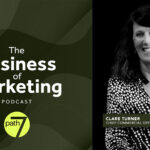By R. Larsson, Advertising Week
Q: While diversity at entry level has shown improvements, the same can’t be said at board level. What can publishers do to not only attract diverse talent, but retain it?
First, publishers need to recognise the problem and not be afraid to say, “We can do better.” Change doesn’t happen overnight, and acknowledging — as an industry, as organisations, and as individuals — that we are on a journey makes the work feel much less daunting. What we can’t do is get defensive and cover our ears to the voices that are rightfully demanding to be heard.
Next is accountability. It’s devastating for new hires to discover their employers have been “diversity-washing,” so publishers need to match their bark with some bite. The All In Hub from the Advertising Association provides a nine step action plan with resources aplenty for companies seeking to improve their DE&I efforts. Those who are able to evidence their success can receive accreditation as an All In Champion.
Finally, DE&I must be a company-wide commitment, not a handful of the same people meeting every month with no power to affect change. Under-represented people need power behind them to enact and enforce the workplace policies that will protect them and allow them to thrive, which requires those in power to provide the necessary resources.
Q: People who are under-represented in publishing often find they lack role models. How can publishers improve their onboarding process to connect new hires with the right mentors and resources?
It can be daunting to join a workplace where most or all your colleagues don’t look, talk, or behave like you. Connecting new hires with mentors from a similar background — especially if they hold a senior role — can help them feel supported, understood, and motivated. This may mean looking outside of their department or even geographic location to find the right match.
Of course, this is easier for a multi-national corporation with a network of thousands of employees. Smaller companies may need to supplement their mentorship by connecting new hires with the appropriate industry networks, as well as designate work time for them to make use of them, rather than make it something they must seek out on their own.
No matter the scale of an organisation, under-represented new hires can be supported by pairing them with executives for mentoring or one-on-one meetings where they can benefit from greater visibility and get their foot firmly in the door.
Q: In addition to being the right thing to do from a moral standpoint, what are the business incentives for cultivating a diverse workforce?
Publishing is a creative industry; we need to be able to feel the pulse of the culture we work in. And that culture is diverse, globally connected, and increasingly motivated by meaning over money. If the makeup of our industry is not reflective of the wider world, then how can we say that we have the right to speak for it?
Beyond the need for authenticity, diversity of perspectives results in a diversity of ideas, and with the rapid pace and information overload of modern life it can take a really fantastic idea to stand out. Perspectives from outside the status quo can identify problems, solutions, and opportunities a homogenous in-group might be blind to.
Whether we mean to be or not, publishers are gatekeepers for cultural content, and there is real incentive for opening those gates. There are huge, underserved audiences who want to see people who look like them and hear voices that speak like them — and what business doesn’t enjoy a growth opportunity?
Q: At the AOP’s recent CRUNCH event, ageism was mentioned as an area often overlooked in DE&I initiatives. How can publishers ensure they’re both hiring and creating a work culture inclusive of the over-45’s?
We need to challenge the mindset that there is a cut-off where people stop being able to learn, start new careers, or stay in-touch with the wider world. The recent census revealed an ageing population, and people will be staying in work for longer for financial reasons or simply because they want to.
No company has the right complain about the difficulties hiring these days if they also ignore a huge chunk of the working population. Publishers can tap into this talent pool by embracing transferrable skills and investing in digital upskilling, which they should be doing anyway with the recent acceleration of workplace digitisation.
Publishers should also think about how they present their organisation to the outside world and resist the urge to only show off their freshest faces. Youth is exciting, but also overvalued, and if yearly 30 under 30 lists celebrate young achievers, we should also be celebrating people who find success and purpose later on in life. Give me a 60 over 60 list!
For women over 45 who face the double whammy of ageism and sexism, Visible Start — a collaboration between Brixton Finishing School, the Uninvisibility Project, and WPP — offers free, online courses and live events to help women 45+ break into the marketing, advertising, and communications industry. It’s the kind of project we need to see more of, and the industry should throw its full weight behind supporting.






